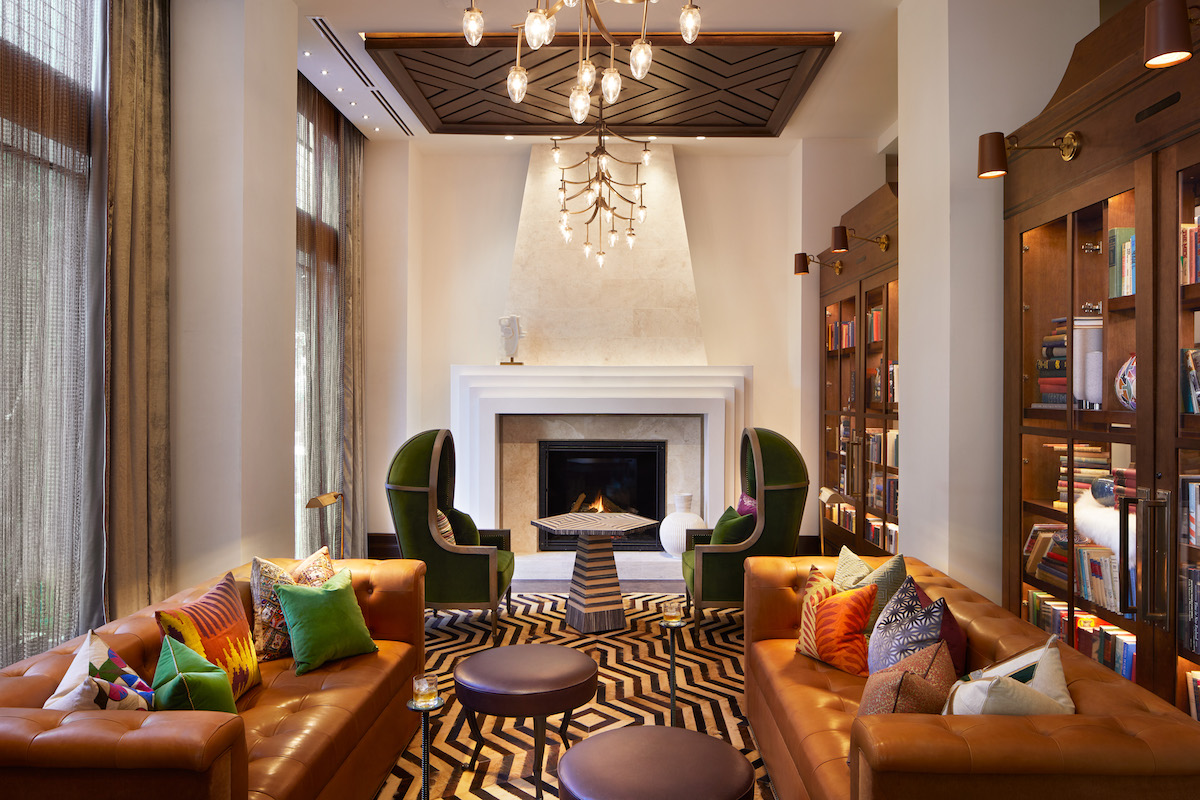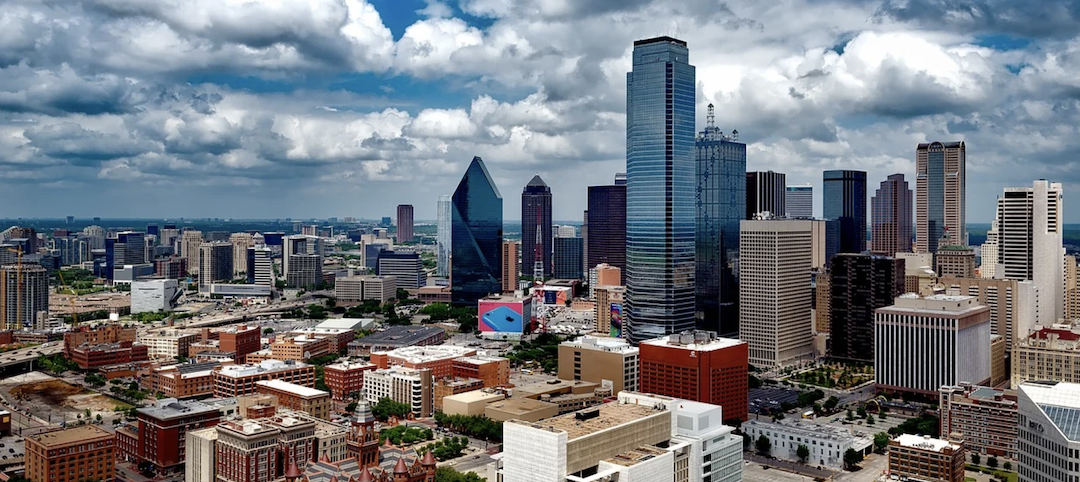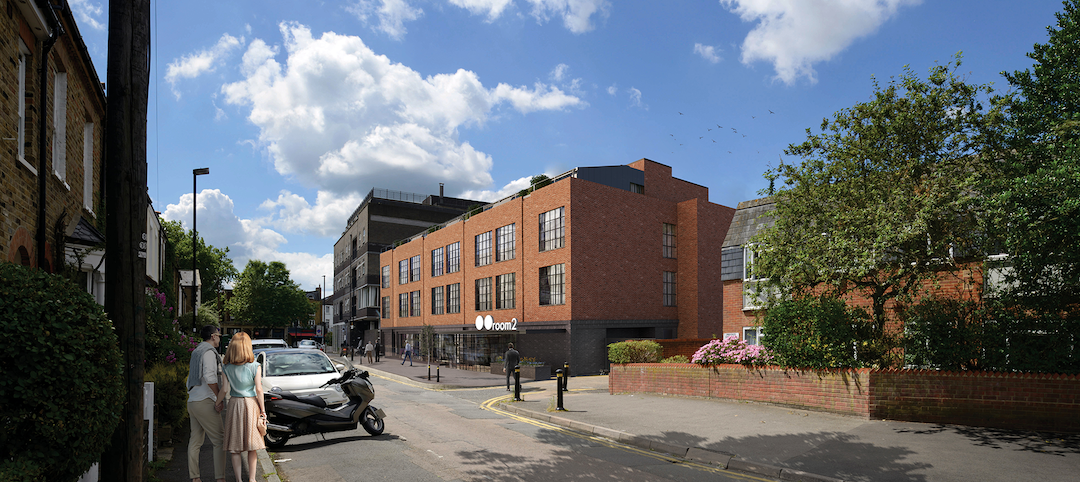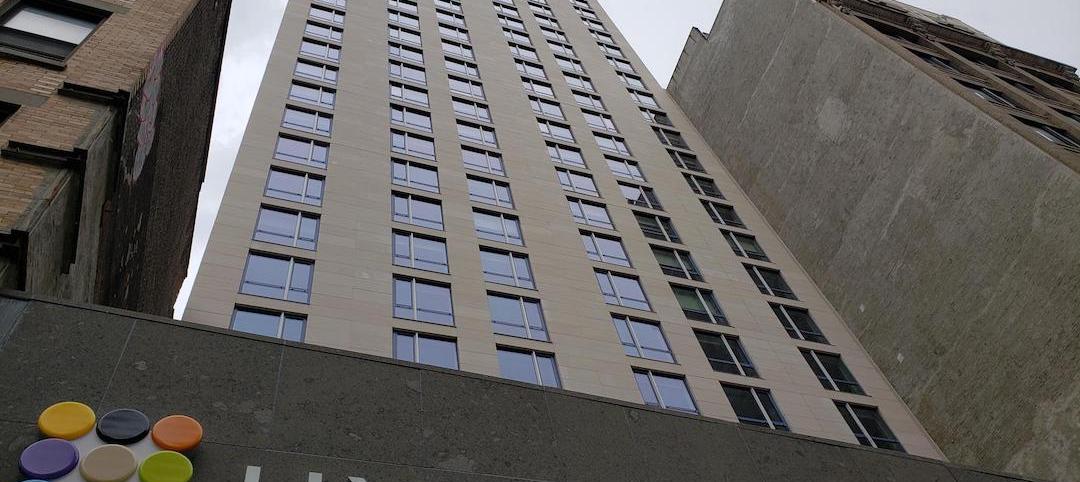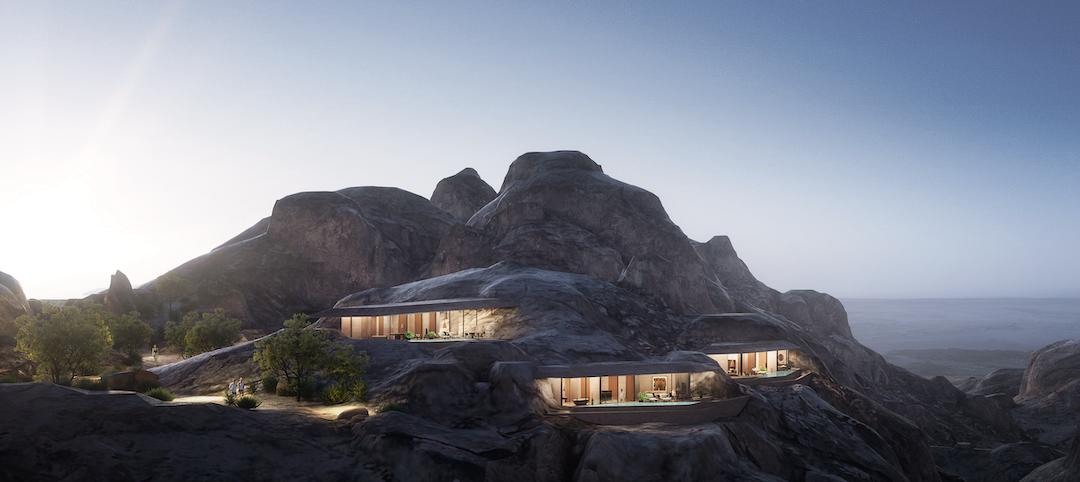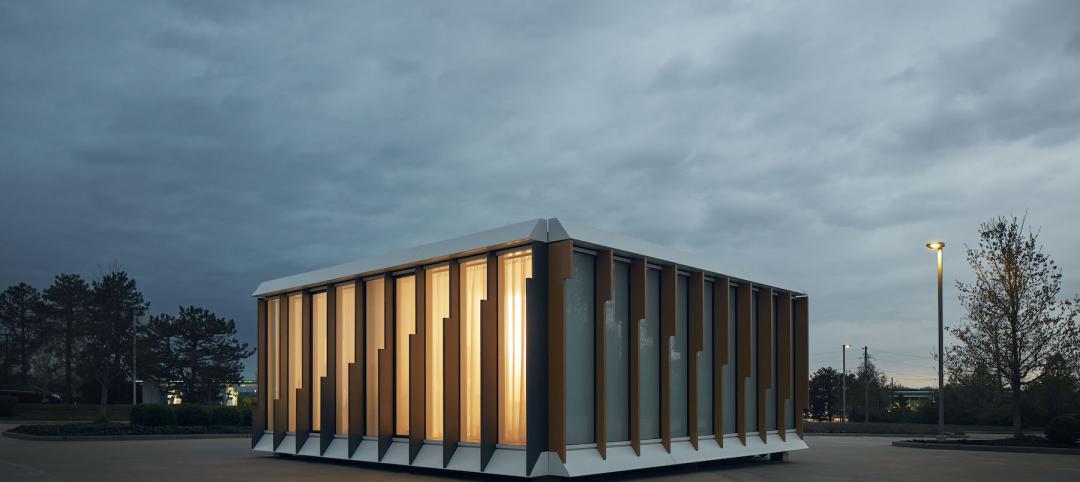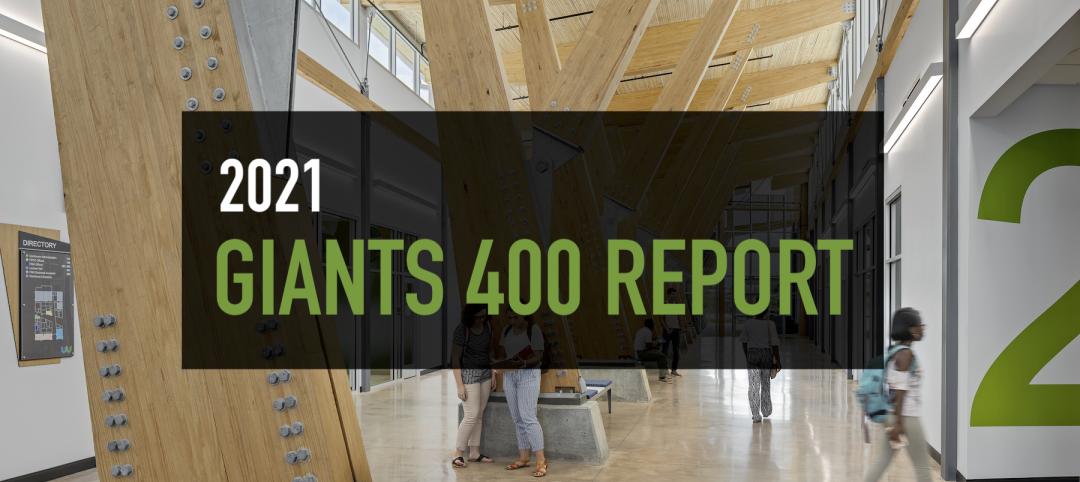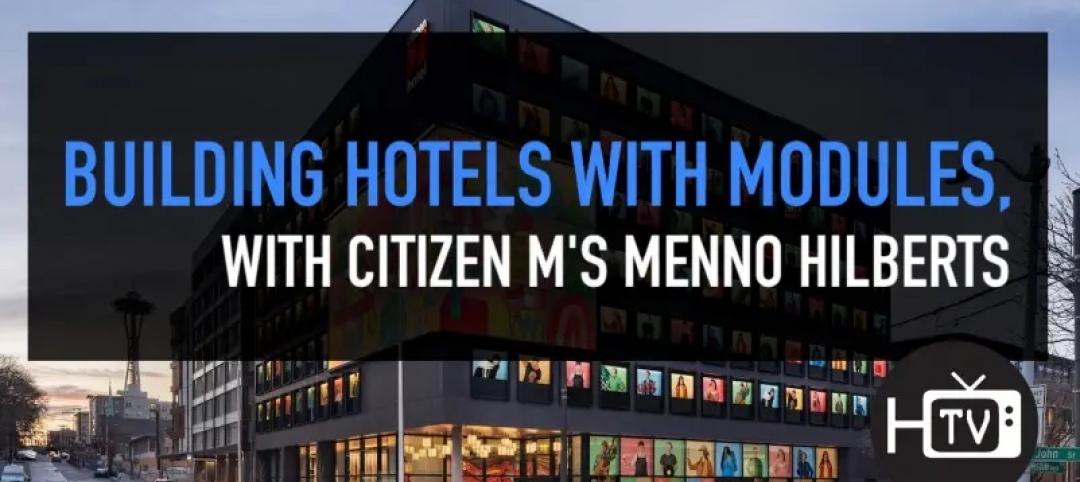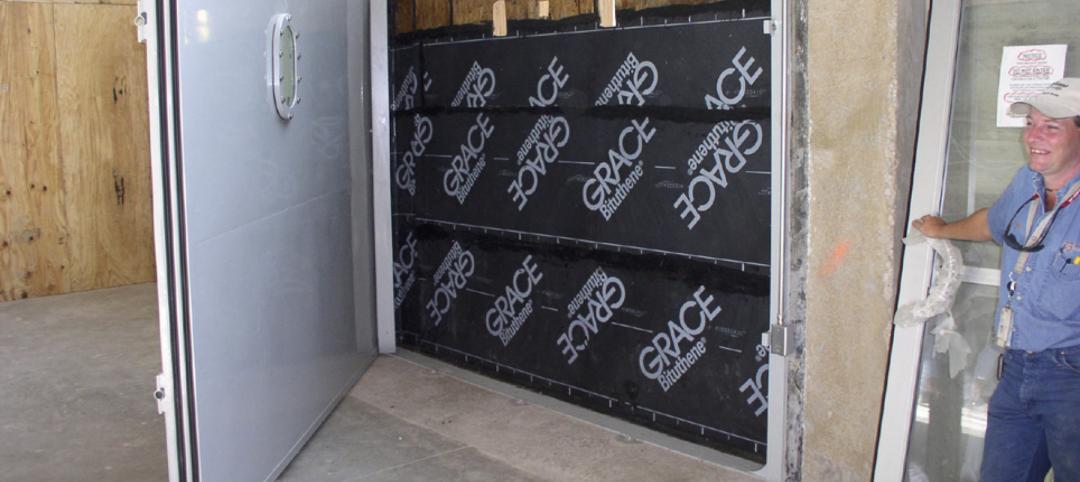Their clients don’t expect the hospitality sector to fully recover from the coronavirus outbreak for at least two years. And while AEC firms serving this sector say they’ve restarted hotel projects that had been put on hold during the pandemic, they also foresee mostly renovation and adaptive reuse, rather than new construction, in their immediate futures.
“Compared to other sectors, hospitality is probably only better than retail at this point,” says Bob Winter, PE, Director of Hospitality for the engineering consultant IMEG.
Even PCL Construction—which as of early June was working on 39 hotel/resort projects, including a first-of-its-kind immersive adventure resort, Star Wars: Galactic Starcruiser at Disney World in Florida—expects the negative impact from COVID-19 to “linger for years,” says Bob Hopferberg PCL’s Vice President of National Business Development.
Some firms say they are girding for a spate of hotel foreclosures over the next 12 to 18 months. Distressed and half-built assets will be in demand among private equity firms, and some of these properties will likely be renovated and converted to multifamily, mixed use, or student housing.
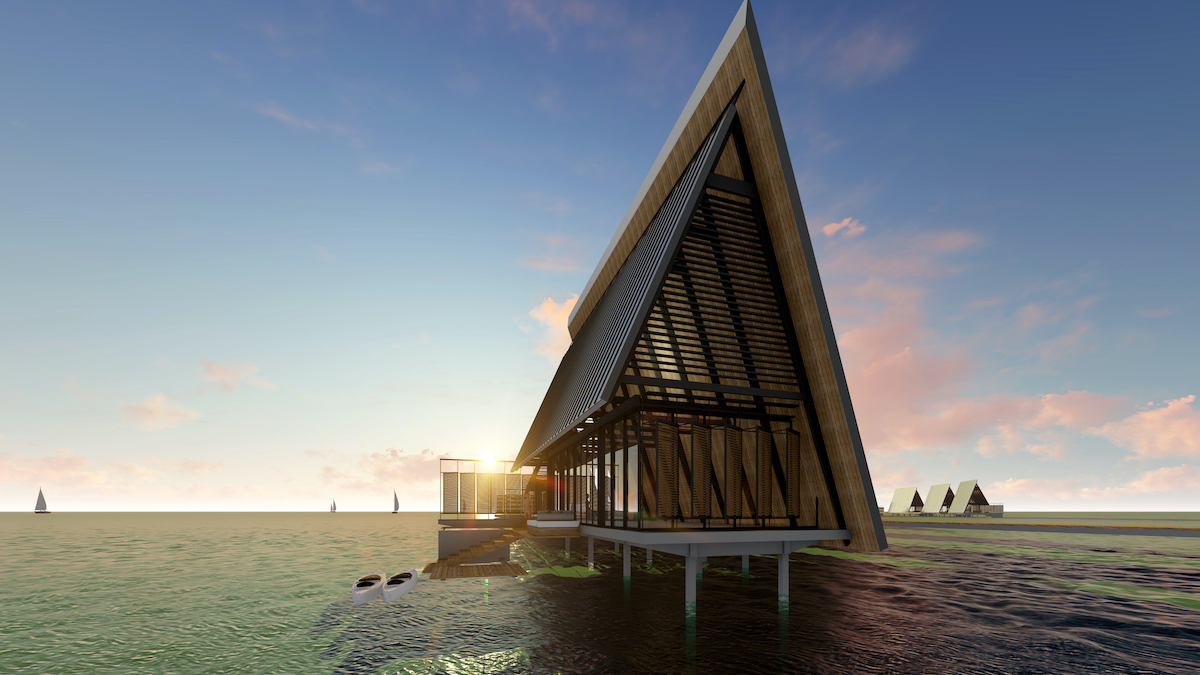
To save time and money, more hotel building teams are turning to prefabrication and modular construction. HKS evaluated more than 15 manufacturers with modular and industrialized construction capabilities to discover the most advantageous solutions for recent design projects such as prefab bungalows for a private island resort. Courtesy HKS
While HKS sees the prospects for new hotel construction in the remainder of 2020 as “bleak,” it is also seeing positive signs for renovations meant to reposition existing buildings. “The mixed-use developments that have a residential component continue to show good health,” say Luis Zapiain, HKS’s Director of Hospitality, and Jennifer Dohrmann-Alpert, its Senior Hospitality Advisor.
“Most hotel owners and operators are looking at strategies that do not require physical architectural changes,” observes Nancy J. Ruddy, Founding Principal and Director of Interior Design with CetraRuddy in New York. She’s seeing hotels planning soft reopenings that span over three months, after which owners will reassess what’s working over six- and 12-month intervals until a vaccine is available.
Renovation projects to make hotel guests feel safe
Hotel survival is all about rebuilding guests’ confidence about their safety, and their comfort about traveling again. HKS created a document that provides guidelines for welcoming guests back, with a priority on safety and wellbeing. “Operational procedures have been changed, likely permanently, affecting everything from check-in/registration, housekeeping, room service, food and beverage, and use of amenities,” adds Tom Philippi, AIA, NCARB, LEED AP, Design Principal at SmithGroup’s Dallas office.
Hotels desperate to win back customers are now engaged in what Randy Shelly, Executive Vice President–Hospitality for Shawmut Design and Construction, calls a “competition for cleanliness.” As a result, Shelly expects the renovation cycle for existing hotels to shorten after the pandemic, which might ultimately help hotels increase their revenue per available room.
The biggest change occurring at hotels is the increasing importance of their food and beverage offering. “When designing hotels, one of the first questions is: How can we bring F+B into this space? We expect to see more areas in the hotel become flexible spaces to dine informally. The entire hotel could become a great F+B experience,” says Bob Neal, a Principal with Cooper Carry’s Hospitality Studio. He, like other AEC sources, is seeing a spurning of buffets (which are highly profitable but can be infection traps) in favor of prepackaged room service and grab-and-go areas in lobbies and corridors.
The other prominent renovation trends for hotels is creating a touchless environment that minimizes the spread of air- and liquid-borne diseases. For that effort, “technology is coming front and center,” says Ruddy. Guest rooms will include enhanced in-room technology to accommodate guests who want to spend more time in their rooms working or relaxing.
In June, the hotelier citizen M introduced safety standards that include a mobile app that allows guests to create a keycard they can use to get into their rooms, order food, and control their in-room environment. The app streamlines contactless check-in/out, payments, and in-room service requests.
“We see hotels and resorts developing more ‘touchless’ interactions at all levels,” says Chad Wisler, PE, LEED AP BD+C, Managing Principal at Vanderweil Engineers’ Boston office. These interactions range from front-of-house entrances to guests’ use of their mobile devices for their virtual room keys, charge accounts, and menu and amenity selections. “COVID-19 has forced this sector (and clients) to adopt this new paradigm,” says Wisler.
Technology will also play a bigger role in hotel sanitization. For example, PCL has developed what it calls a Hygiene Lighthouse, which deploys Far-Ultraviolet bulbs that can kill 99.99% of pathogens quicker and more efficiently than other UV or traditional methods for cleaning rooms, housekeeping carts, and bell carts.
But what hotel owners also need to be cautious about, warns IMEG’s Winter, is not allowing technology and cleanliness to make their properties bland, sterile, and impersonal in ways that dissipate “the social aspects that drive the business.”
Hotel design: A bigger push for prefab and modular options
As the hospitality sector claws its way back to something resembling normal, certain venue types could recover faster. Philippi of SmithGroup cites extended-stay and apartment-style hotels. Wisler of Vanderweil Engineers—which now leans toward design-assist delivery—thinks experience-based resorts and wellness retreats will be in demand. Shelly of Shawmut Design and Construction says hotels in New York are looking at their properties as “mini mixed-used developments” and are focusing on using “engaging public spaces” to connect with their surrounding neighborhoods. Shawmut is also seeing hotels in southern California redesigning spaces to activate revenue; he points specifically to the Four Seasons Westlake Village that turned lobby space into a bar and restaurant area.
CetraRuddy and SmithGroup are among the AEC firms that see connections to the outdoors and nature becoming more common to hotel/resort design and wellness programming.
ALSO SEE: Why clean is the new green in the U.S. hospitality sector
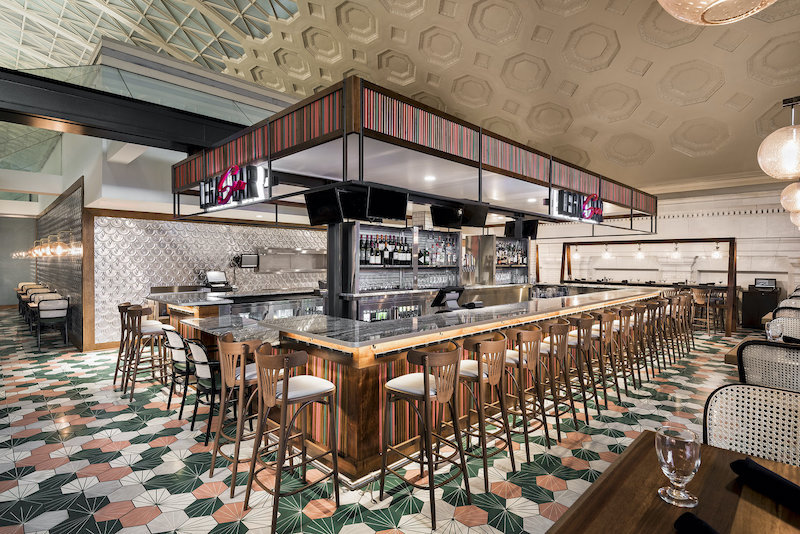
Three design firms share their takes on what will make customers more comfortable about returning. Read the article.
While luxury hotels foundered during the pandemic, firms like Shawmut and HKS believe affluent guests will eventually return to these venues. “On the bright side, investors are still buying hotels, and the focus has shifted to ultra-luxury or to limited service/select service properties,” observe Zapiain and Dohrmann.
They’re also seeing modular design “making waves” in the hospitality sector. HKS has been working with suppliers “to refine and develop their hospitality products” for recent projects that include prefab bungalows for a private island resort and a fully modular urban hotel in Anchorage, Alaska. HKS estimates that prefabricating guest rooms in factories can reduce a project’s schedule time by up to 50% and its construction budget by 20%.
Prefabrication “is a major push” in hospitality, concurs Matt Murphy, Commercial Core Market Leader with DPR Construction. Applications range from full modular units to prefab bathrooms, electrical rooms, and exterior skin systems. For AC Marriott in Phoenix, DPR used a prefab structural system from Digital Building Components; the JW Marriott in Charlotte, N.C., features prefab bathrooms from SurePods. “We anticipate this trend will increase, post-pandemic, as contractors look at ways to limit on-site labor and the challenges of COVID-19 prevention measures such as social distancing,” says Murphy.
Related Stories
Hotel Facilities | Nov 3, 2021
California’s Hotel del Coronado is finishing up the final piece to its Master Plan
A 75-residence Shore House will be family oriented and meeting commodious.
Hotel Facilities | Oct 28, 2021
At the end of Q3 2021, Dallas tops the U.S. hotel construction pipeline
The top 25 U.S. markets account for 33% of all pipeline projects and 37% of all rooms in the U.S. hotel construction pipeline.
Hotel Facilities | Oct 13, 2021
World’s first net zero carbon hotel launches in West London
The hotel is located in Chiswick, West London.
Hotel Facilities | Oct 12, 2021
510-room Hyatt Place Hotel completes in Chelsea
The project broke ground in January 2019.
Hotel Facilities | Sep 27, 2021
New resort will be carved directly into a mountainside
The project is is located in western Saudi Arabia.
Hotel Facilities | Sep 22, 2021
Will hotel developers finally embrace modular construction?
Last May, MiTek, a construction software and building services company that’s part of Warren Buffett’s Berkshire Hathaway conglomerate, formed a partnership with Danny Forster & Architecture to promote modular design and construction.
Giants 400 | Aug 30, 2021
2021 Giants 400 Report: Ranking the largest architecture, engineering, and construction firms in the U.S.
The 2021 Giants 400 Report includes more than 130 rankings across 25 building sectors and specialty categories.
Hotel Facilities | Aug 26, 2021
Building hotels with modules, with citizenM's Menno Hilberts
In this exclusive interview for HorizonTV, Menno Hilberts, Managing Director of Project Management with hotelier citizenM, explains how the company is employing modular construction to help double its presence in the U.S.
Resiliency | Aug 19, 2021
White paper outlines cost-effective flood protection approaches for building owners
A new white paper from Walter P Moore offers an in-depth review of the flood protection process and proven approaches.
Hotel Facilities | Aug 16, 2021
7 Cedars Hotel completes on Washington’s Olympic Peninsula
Rice Fergus Miller Architecture designed the project.


